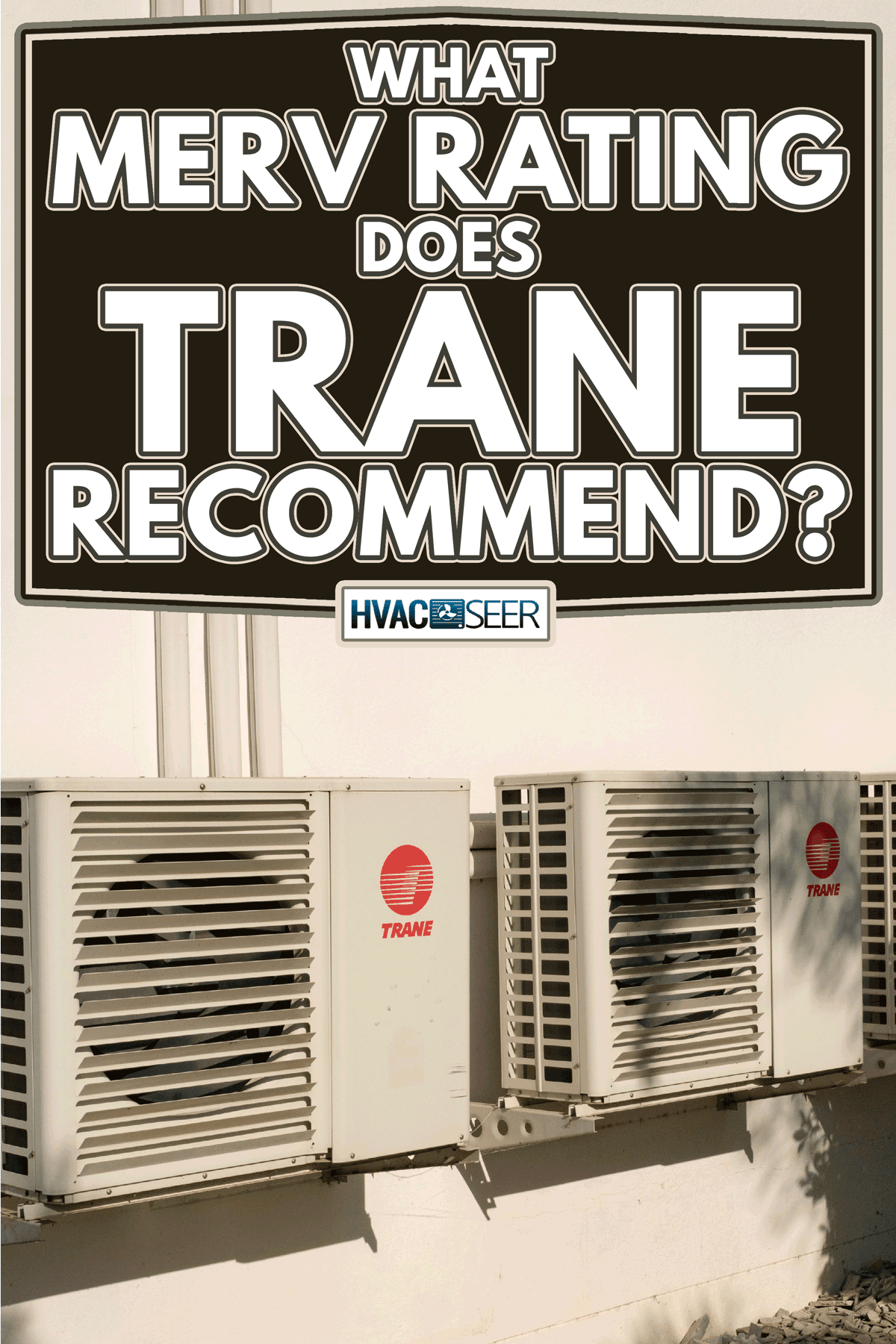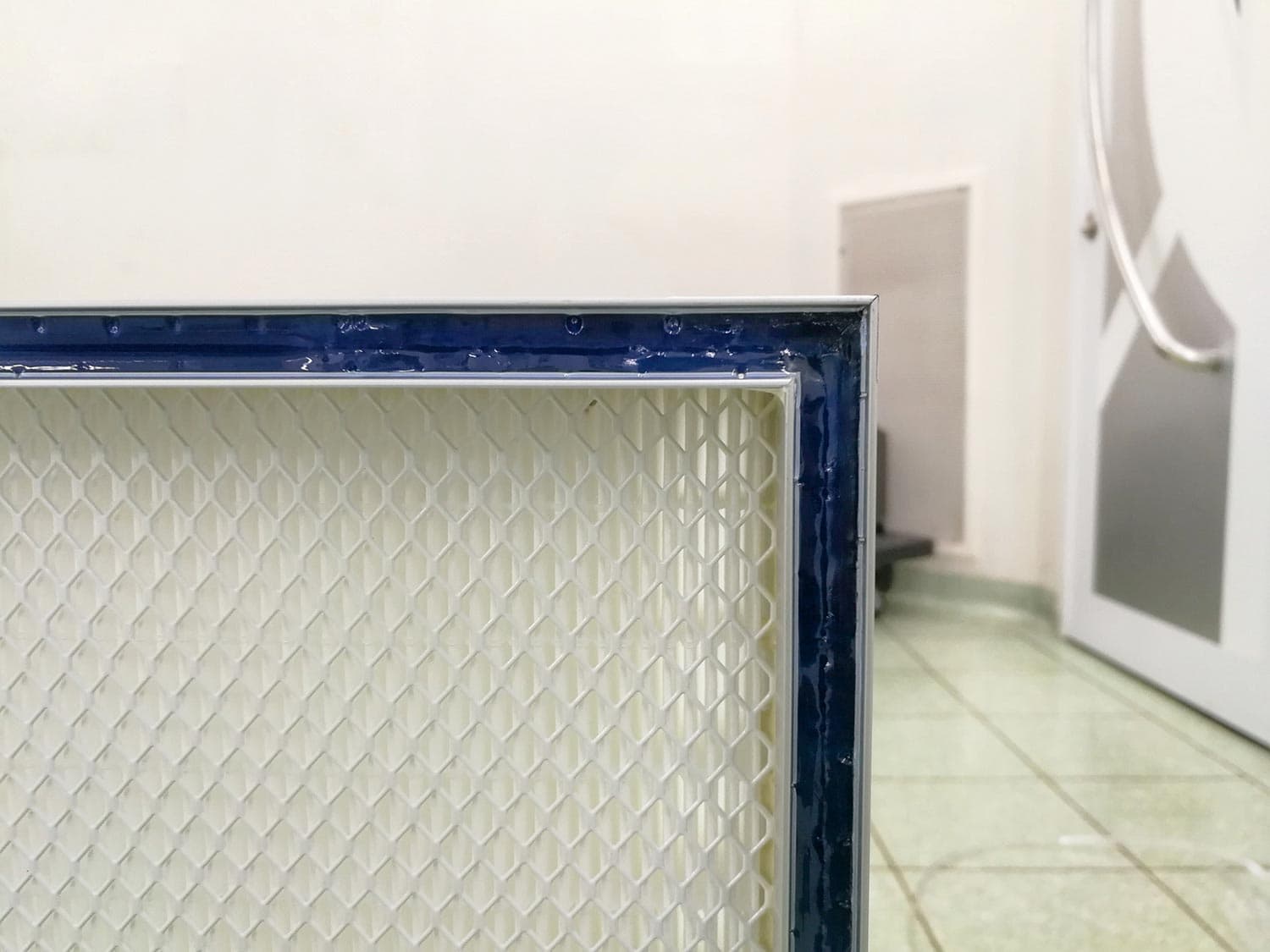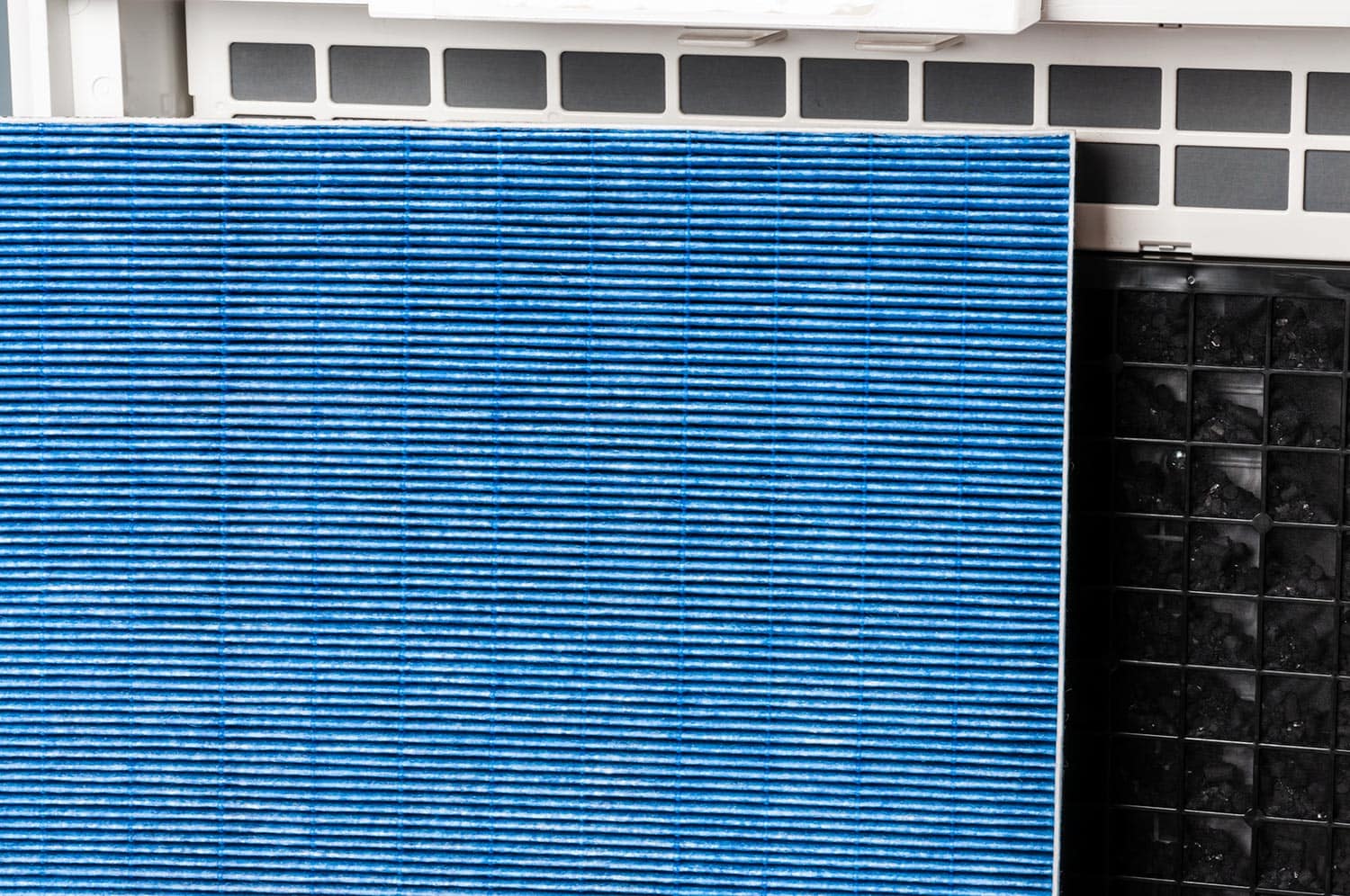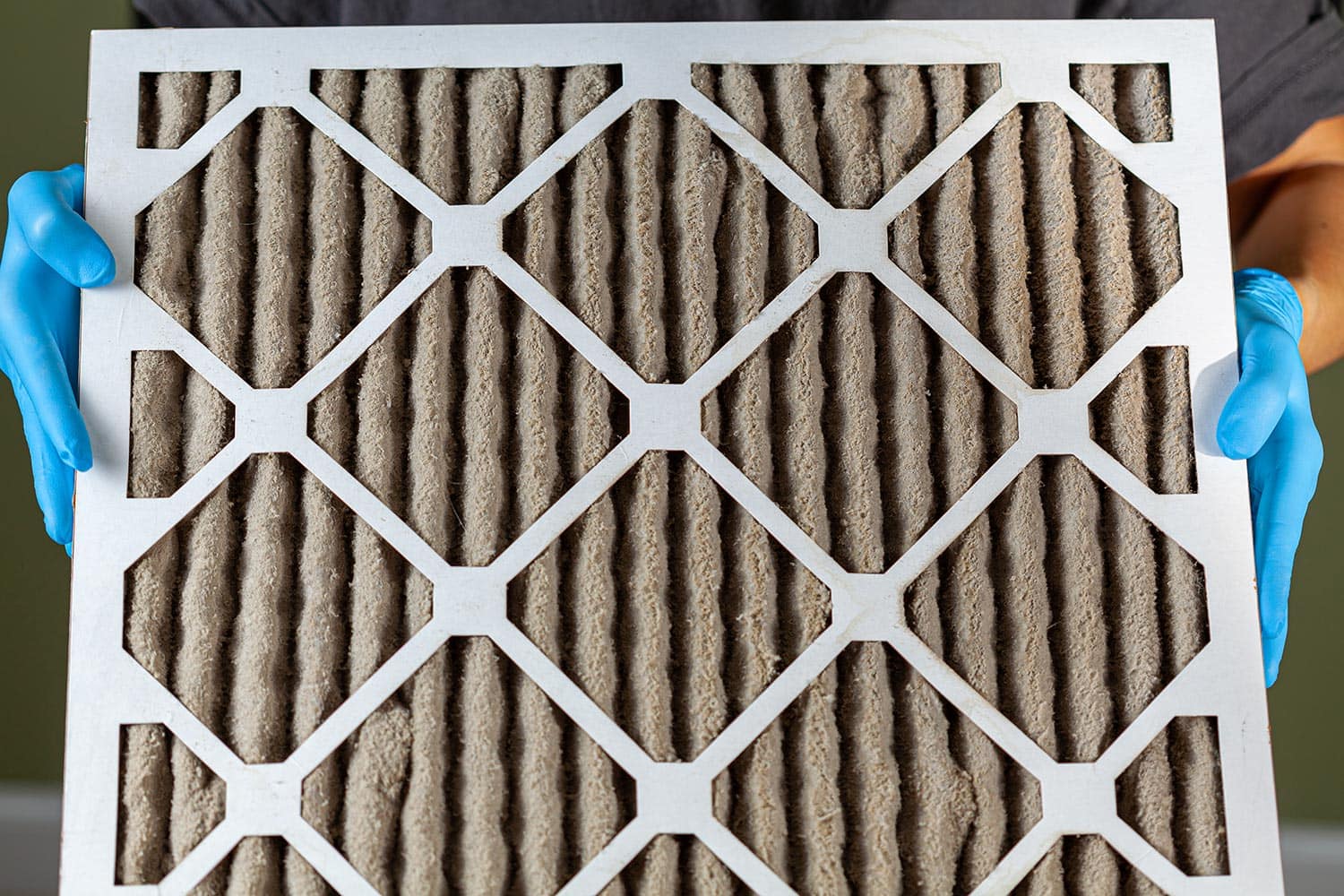Let's say the time has come to replace your Trane HVAC filter. However, changing filters doesn't happen so often, and now you're wondering what's their MERV rating recommendation to have yours? Wonder no more! We've searched this topic, and we've got the answer below!
In general, Trane recommends a MERV rating of 8-13 for most residential homes. However, having a family member who often blows tobacco inside your house, then a MERV 16 is your best option.
Knowing the right MERV rating you need will determine the air quality you get inside your house. So choosing a filter to have yours is always crucial. Stay tuned! as we continue to explain the other key points below. So read on!

Other Trane MERV Rating Recommendations
Filters prevent the parts of your HVAC system from air debris and buildup, which can reduce the system's working life. An adequately installed filter can also catch harmful and frequently unnoticed particles in your home's air.
It indicates how well a filter can trap big air particles and contaminants. The higher the MERV value indicates how well a filter captures specific pollutants from the air.
Check out these MERV ratings below to identify which one you need:
MERV 1 - 4 Ratings
This is common on residential furnaces, pre-filtering business buildings, and window air conditioners.
In addition, it can control particles as tiny as 10 microns, such as sawdust, textile, pollen, dust mites, and carpet fibers. It also has a 35 to 50% trapping efficiency value.
MERV 5 - 8 Ratings
Moreover, you can use this filter on residential, commercial, and industrial buildings. It can trap air contaminants as small as 3 to 10 microns like lint, mold spore, and home dust.
This filter is best among average required air quality residentials for having a capturing rate of 50 to 70%.
MERV 9 - 12 Ratings
Most above-average air quality buildings such as hospitals, laboratories, and residential facilities with elderly households and pets used this filter.
What's more, It can also catch 1 to 3 microns size of legionella, pet dander, clothing fibers, and hair. Expect this to capture as efficient as 90% rate.
MERV 13 - 16 Ratings
This filter can capture even the tiniest air pollutant like bacteria, mold spores, and tobacco smoke the size of o.3 to 1 micron.

You can see this in most residentials, a facility that needs maximum air filtration like inpatient and surgical rooms. A widely used filter has a proven efficiency rate of 90 to 98%.
Trane's Various Kind Of Filters
The Traditional Fiberglass Filters
This filter has gained credit from most homeowners for many years for having an affordable price. But it can't trap some air contaminants, especially allergens.
The Pleated Fiberglass Filters
In contrast, this filter can clean out up to 45% of air allergens in your house, such as pet dander and pollen. The disadvantage is that they are slightly more expensive and may limit the airflow of the HVAC system.
Check out this Trane air filter on Amazon.
The HEPA Filters

These filters are so effective that they can remove up to 98 percent of contaminants from the air, but they're so dense that they add an extra fan to force air through them.
What Is MERV Rating?
The air filter undergoes a testing protocol called Minimum Efficiency Reporting Values (MERV) to measure its ability to trap air debris and pollutant. The MERV rating shows a filter's particle collection effectiveness over various sizes.
The American Society of Heating, Refrigerating, and Air-Conditioning Engineers (ASHRAE) created the MERV measurement scale in 1987 to assess the efficacy of air filters in greater detail than other assessments.
What MERV Rating Should I Use?
Identifying what MERV rating you want to use is the same as picking out what medicine you want to take. However, before you make a decision, you should consider the following:
- Is my house in a dusty area?
- Do I have a pet? What breed is it?
- Is my home in a high or moderate populated place?
- Does anyone in my house have allergies or asthma?
- Do you cook in your home often? Is there proper ventilation?
What Is The Difference Between MERV 16 And HEPA Filter?
HEPA filters function even better than MERV 16 filters. A HEPA filter traps 99.97 % of air particles of 0.3 microns, whereas a MERV 16 filter catches 95 % of air pollutants.
The difference between these two filters varies in the location or the setting you apply to them. What's more, research was conducted in the mining area, focusing on which is a more optimal filter.
The result shows that MERV 16 is way more optimal than HEPA filters in this specific place.

Is MERV 13 Too High For A Home?
A MERV 13 air filter must provide excellent air filtration in a home without affecting airflow.
Using an overly high MERV rating air filter isn't practical the same as using one with a low MERV rating. Furthermore, higher MERV ratings allow for more filtering.
However, the density of the filtered particles can hinder airflow. Airflow restrictions can reduce comfort, raise energy usage, and increase the wear and tear of your HVAC systems.
Is MERV 13 Enough For Covid-19?
Filter with a MERV rating of 13 or higher can trap even the tiniest particles, such as viruses. But COVID-19 protection requires more than an improved HVAC filter as defined by experts.
An improved HVAC air filter can be part of precautions to safeguard your family when used in combination with other CDC-approved HVAC filters.
Is There A Downside To High-MERV Filters?

Most people tend to forget how important it is to understand the effect of using a HIGH-MERM filter.
According to Davis Energy Group, they have found some issues using a MERV 12 of 2 - 4 inch filter. The results found a significant reduction in air velocity traveling across media.
The difference in airflow between MERV 2 and 13 filters is less than 200 CFM. Hence the filters have a minor impact on compressor energy.
However, the filter's pressure loss is so high that it triples when it becomes super dirty with dust particles hence clogged filters are likely to be fastened to wear out the system efficiency.
How Often Should You Change A MERV 13 Filter?
Trane suggests that it would be good to replace it once every 3 to 9 months to prevent restricted airflow. But changing your filter every three months provides superior filtration, giving your house the best clean and healthy air.
See this MERV 13 Filter on Amazon.
9 Easy Steps To Replace Your MERV Filter
- Turn off the thermostat power and remove the filter media.
- Put the filter frame on the table.
- Remove the old filter by gently pulling it out from the filter door.
- Unsnap the latches and unfold the plastic filter frame.
- Place the filter media securely on the filter frame.
- Attach cardboard to the outside edge of the frame.
- Securely snap the latches on every four sides of the filter frame.
- Reinstall your new filter accordingly to the arrow direction.
- Put the power on again.
Check out this other Trane replacing filter tutorial on YouTube:
What Happens If You Don't Change Your Air Filter?
Failure to change your air filter might cause harm to other components of your system, resulting in a significant repair cost later. Moreover, regularly changing your air filters can assist in extending the life of your HVAC system and improve its efficiency.
These are the potential risk you'll face if you fail to replace your filter regularly:
Airflow Reduction
A blocked air filter restricts airflow by trapping dust and debris. To adjust, your HVAC system may have to work much harder, damaging your entire system.
Allergies Worsening
People with allergies may experience increased discomfort, cold-like symptoms, and headaches.
This is because significant allergens aren't being clean well as they should be. These particles move across your home continuously if you don't change your filter regularly.
Surges In Power Bills

Reduced airflow caused by a filthy filter puts your HVAC system under much strain. All of this adds to the cost of your power bills and stress on your part.
To Wrap Up
Throughout this topic, we've learned what's Trane's MERV rating specification. Furthermore, we've also addressed what's the ideal MERV value that fits your house-specific needs. Also, you know how vital it is to replace your filter regularly to keep your air quality at the utmost level.
We know that when you choose to have your Trane filters, all of this knowledge will help you. So we're confident to set off now, leaving you all these significant learnings.
But before we go, if you enjoy reading this topic, please check out these related helpful topics below!


